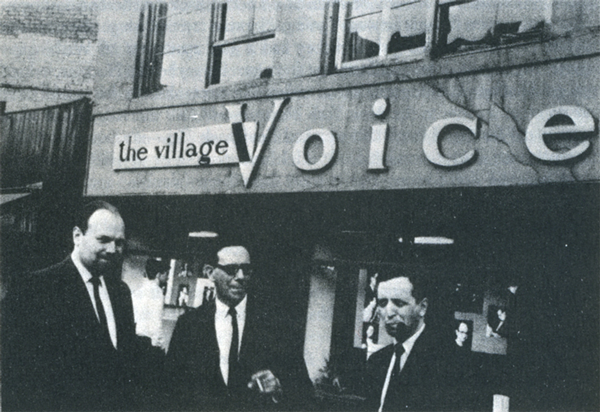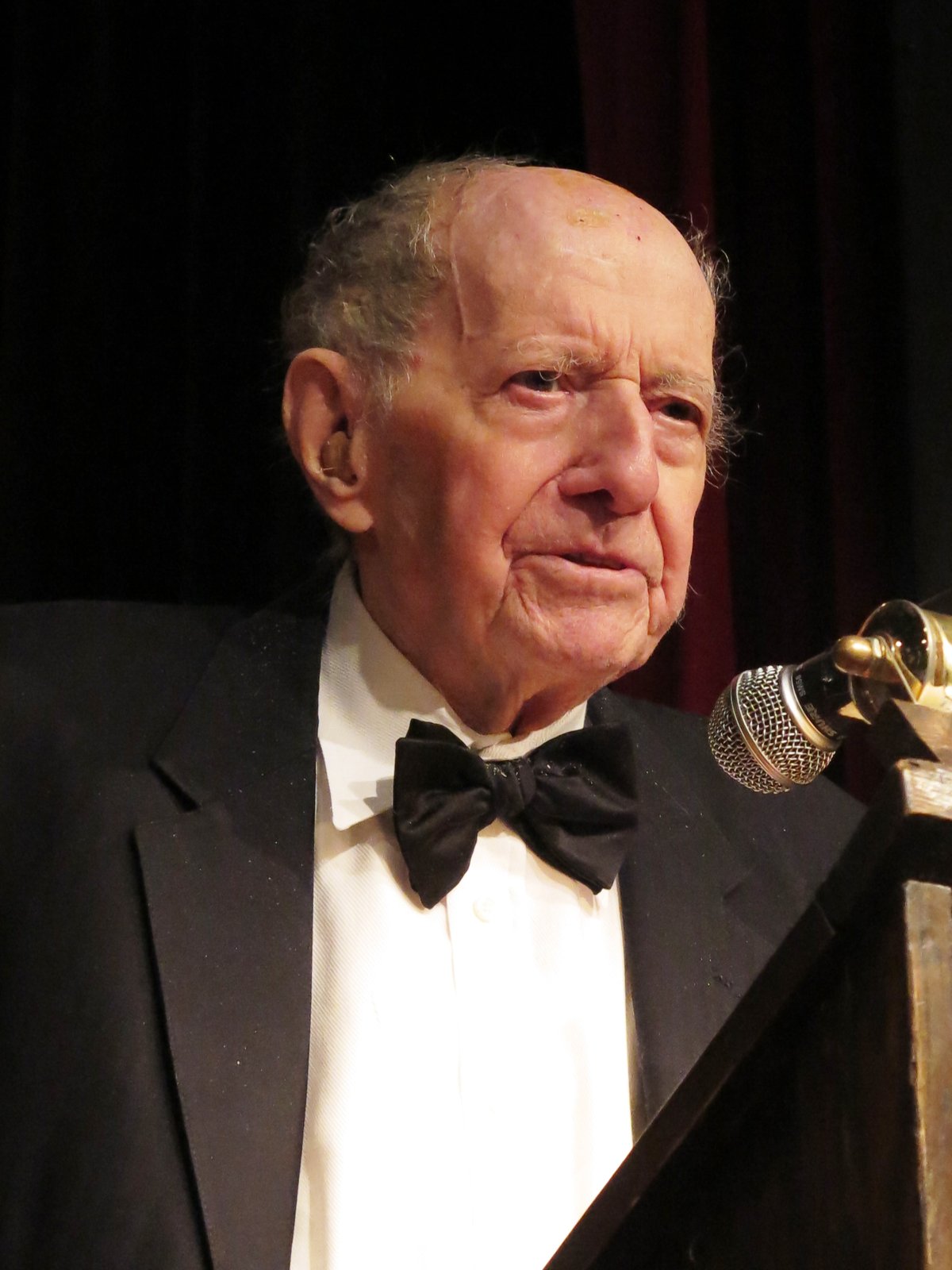BY LINCOLN ANDERSON | Sixty-two years after its founding in a Greenwich Village apartment by Norman Mailer, Dan Wolf and Ed Fancher, The Village Voice will soon end publication as a print newspaper, its owner announced Tuesday.
In a statement, Peter Barbey said the Voice’s Web site will remain active and that the paper “plans to maintain its iconic progressive brand with its digital platform and a variety of new editorial initiatives and a full slate of events that will include The Obie Awards and The Pride Awards.”
The Voice went free in 1996 in response to competition from another alternative print weekly, the New York Press, which, after a number of years of existing only online, totally ceased to publish a few years ago.
The Voice’s revenue has been decimated by the Internet, as the paper lost its classified and personal ads to sites like craigslist and as its print ads plummeted. However, Barbey said the paper’s readers today are online, too, and want daily — not just weekly — news and information.
“The most powerful thing about the Voice wasn’t that it was printed on newsprint or that it came out every week,” Barbey said. “It was that The Village Voice was alive, and that it changed in step with and reflected the times and the ever-evolving world around it. I want The Village Voice brand to represent that for a new generation of people — and for generations to come.”
One of the country’s first alternative weeklies, the Voice in its heyday was a bible of the counterculture, and was known for its muckraking columnists, like Nat Hentoff and Wayne Barrett.

In its early years, the Voice also had an impact on The Villager, which was founded in 1933, forcing it to catch up with the times and become more political. Up until then, The Villager had been more focused on the social doings at the Village’s Fifth Ave. hotels, flowerbox competitions, sing-alongs in Washington Square Park and the like.
Barbey noted that his family has been in the newspaper business for more than 200 years. He said he first read the Voice as a student in the 1970s and realized its importance then.
“For more than 60 years, the Village Voice brand has played an outsized role in American journalism, politics and culture,” he said. “It has been a beacon for progress and a literal voice for thousands of people whose identities, opinions and ideas might otherwise have been unheard.”
His family bought the paper two years ago. The Barbey family is the 48th wealthiest in the country, and owns a stable of lucrative clothing stores, including North Face, Timberland, Vans and Wrangler, the New York Post reported. Nevertheless, Barbey said he wanted to find a way to run the Voice that wasn’t dependent on rich backers.
“I can keep the Voice going,” he told the Wall Street Journal, “but if that’s the only solution, then only the wealthy will support free speech. I don’t want that world. I’m not that kind of wealthy person.”
Although the Voice revived somewhat under Barbey’s ownership, many former readers felt the paper had long ago lost its luster.
“Wow. It’s been dead for years anyway,” a poster, Teleos D. Kaye of Brooklyn, wrote on Facebook. “I can’t even say I care. I mourned its loss years ago.”
In an interview with The Villager on Tuesday afternoon, original Voice publisher Fancher, 93, who lives in Gramercy, lamented the news.
“I’m very sad to see the print edition terminate,” he said, “because I think the paper had made a recovery in later years, and had been improving a great deal. I did read the print edition, but I probably won’t read the online edition. I read a lot of things online, but mostly little things. I don’t know what it means when it says it will continue online,” he said.
Fancher noted there were some technological advances at the Voice during his time — such as moving from Colonial-era flatbed printing to rotary printing. But that pales in comparison to the revolutionary impact the Internet has had on journalism.
Fancher was publisher of the Voice for 19 years until 1974, when he and editor Wolf sold their interest to Carter Burden, who then quickly turned around and flipped it, “against our wishes and against our understanding,” to New York magazine, Fancher noted.
“We ran out of money,” he said, as to why the pair sold. “Dan Wolf was tired.”

Fancher recalled the late Jerry Tallmer, the Voice’s do-it-all managing editor and Obies founder, who, in his later years, was a prolific contributor for The Villager.
“Jerry was a workaholic and we could not have launched The Village Voice without him,” he said. “He knew how to put a newspaper out — we didn’t, really. … I’m glad that Jerry ended up at The Villager,” he said.
It was Mailer and Fancher who ponied up the money to start the paper. Wolf didn’t have funds. There were also a couple of outsiders who gave money, including Herbert Lutz.
As for who coined the name The Village Voice, Fancher said he honestly is not sure.
“I don’t know who thought up the name,” he said. “Norman Mailer always said he it was him, but I don’t know. … Now, if it’s not going to print, it doesn’t matter.”

















